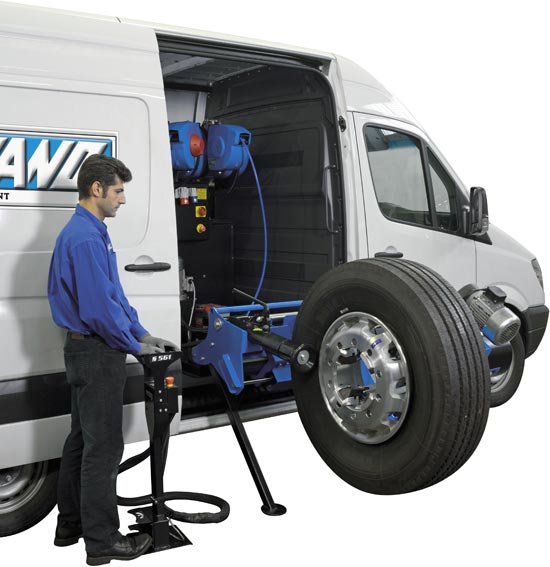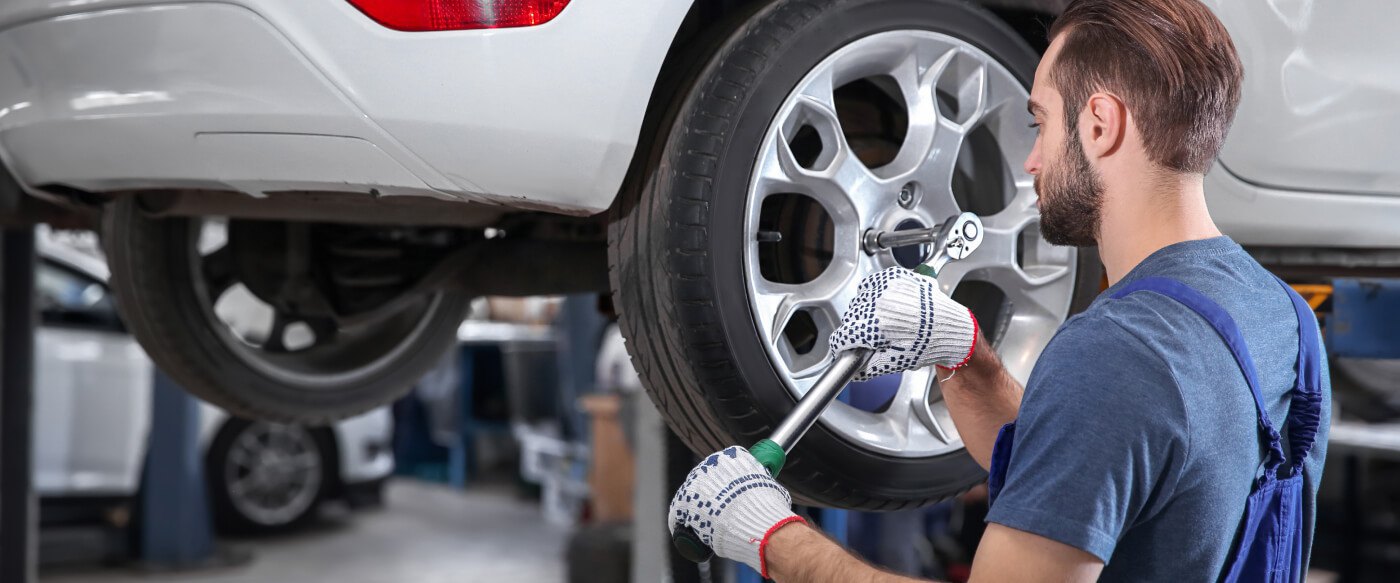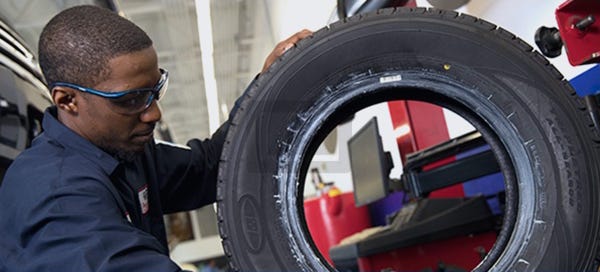Boost Your Drive: Top-Notch GMC Tires Service at Morris Tires
Boost Your Drive: Top-Notch GMC Tires Service at Morris Tires
Blog Article
Tire Service: The Effect of Climate Condition
When it pertains to ensuring optimal performance and safety and security on the roadway, recognizing the impact of weather on tire service is essential. From scorching warm to icy roads, each climate component can considerably affect tire performance and general driving experience. By diving into the impacts of varying climate condition on tires, drivers can obtain important insights that may improve their automobile's performance and long life. In this conversation, we will explore the elaborate connection in between climate conditions and tire service, dropping light on the relevance of weather-specific tire maintenance methods and factors to consider.
Warmth and Tire Efficiency
When revealed to heats, tires experience adjustments in efficiency that can dramatically influence car security and handling. The warmth produced from extended driving or warm weather problems triggers the tire rubber to soften, bring about lowered walk life and enhanced wear. As the rubber becomes softer, the tire's grip when traveling diminishes, influencing braking distances and general traction. In severe situations, extreme warm can also trigger tire blowouts, posing a severe security danger to the vehicle and its residents.

Cold Weather Effects
Cold weather condition conditions can have a considerable impact on tire efficiency and safety and security. In cold weather condition, tires may additionally shed air pressure a lot more quickly, which can impact managing and gas performance.
To reduce the impacts of cool climate on tires, it is critical to frequently inspect tire pressure and inflate them to the manufacturer's suggested levels. Using winter months or all-season tires created for chilly climate conditions can additionally boost grip and grasp on icy or snowy roadways. Correct tire maintenance, consisting of normal inspections for wear and damages, comes to be also extra essential during colder months to ensure ideal performance and security.
Rainy Conditions Influence
Tires with damaged treads are a lot more vulnerable to hydroplaning, where a layer of water develops up in between the roadway and the tire surface area, leading to loss of grip. To combat this, chauffeurs ought to routinely inspect their tires for adequate step depth and take into consideration spending in tires especially developed for wet problems.
In addition, rainy climate can additionally decrease exposure, making it testing for chauffeurs to see the road ahead plainly (GMC Tire Service). In such conditions, it is important to readjust driving speeds as necessary and maintain a risk-free following range to permit for unexpected stops. Correctly inflated tires can also aid in keeping control on wet roadways by offering much better handling and hold
Snow and Tire Safety And Security
Snow-covered roadways pose one-of-a-kind obstacles for chauffeurs, stressing the relevance of proper tire selection and maintenance. When driving in snowy conditions, having the appropriate tires can make a substantial distinction in safety and performance. Wintertime tires are made with special rubber compounds and step patterns to give better traction on snow and ice compared to all-season tires. The deeper treads and sipes of wintertime tires aid hold the road better, lowering the threat of sliding and sliding.

It is essential to follow producer guidelines when setting up and utilizing tire chains to protect against damage to the tires and lorry. By picking the best tires, maintaining proper inflation, and taking into consideration additional traction aids like tire chains, vehicle drivers can enhance their security when browsing snow-covered roadways.
Weather-Related Tire Maintenance
When faced with numerous weather, correct tire maintenance comes to be a critical element of lorry safety and performance. Weather-related gmc tire service tire upkeep incorporates a range of techniques targeted at making sure optimal tire function and long life in various weather situations. One essential aspect of weather-related tire maintenance is tire pressure law. Changing temperatures can create tire pressure to vary, influencing traction and fuel efficiency. Regularly adjusting and examining tire pressure according to maker referrals is vital for risk-free driving in altering weather conditions. Furthermore, tire step depth plays a substantial duty in managing different climate components. Tires with sufficient step depth provide better grip on damp or icy roads, minimizing the danger of skidding or hydroplaning. When walk wear gets to a certain depth is vital for preserving traction and security in negative weather condition, inspecting tire step routinely and replacing tires. By focusing on weather-related official site tire maintenance, chauffeurs can improve safety and security, enhance car performance, and prolong the life-span of their tires.
Verdict
In final thought, weather have a significant influence on tire efficiency and safety and security. From warm impacting tire pressure and wear to winter reducing traction, it is important to consider the weather when preserving and making use of tires. Wet problems can lower grip and bring about hydroplaning, while snow can increase the threat of mishaps if tires are not properly furnished. Weather-related tire maintenance is important in guaranteeing optimal efficiency and safety and security when traveling.
In this discussion, we will explore the complex connection in between weather conditions and tire service, dropping light on the value of weather-specific tire upkeep practices and considerations.

Report this page